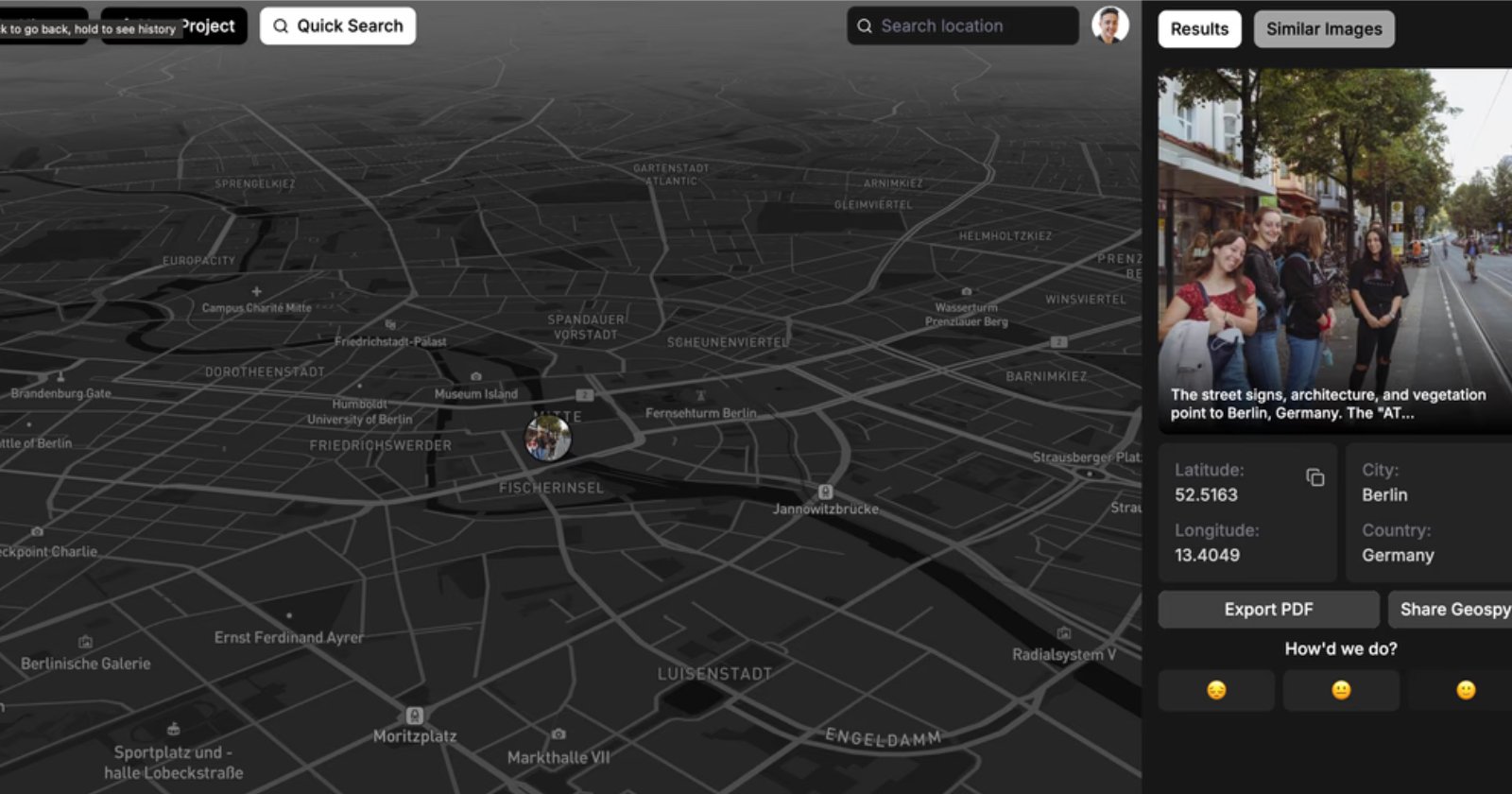 A screenshot of GeoSpy
A screenshot of GeoSpyThis AI tool, which was trained on millions of images, can find the location of a photo in seconds.
A recent report by 404 Media highlighted the emergence of GeoSpy, an advanced AI tool developed by Boston-based Graylark Technologies.
GeoSpy is capable of accurately determining the location of photographs by analyzing elements such as vegetation, architecture, spatial relationships, the type of road surface, and other small details in an image.
The system, which was previously trained with millions of photos from all over the world, can determine a location relatively precisely down to which city or area a photo was taken. Although it usually does not go as far as the street or house number, it can bring down the search area to a few square miles.
GeoSpy makes it remarkably simple for anyone to identify the location of a photo, eliminating the need for specialized skills or training. Traditionally, open-source intelligence (OSINT) experts spend years honing their ability to accurately analyze images, but this tool allows even novices to achieve similar results with ease and speed.
Even someone with little understanding of technology can potentially track down a person based on photos shared online. Social media platforms may remove metadata, such as GPS coordinates and other location details, from uploaded pictures, but GeoSpy doesn’t rely on that data to identify a location.
Graylark Technologies, the company behind GeoSpy, says it developed the AI tool for government agencies and law enforcement officers.
However, initially, for several months, GeoSpy was available to anyone who wanted to try it.
According to 404 Media, people began sharing videos online showing just how powerful GeoSpy was — spotting the location of a photo within seconds. The news outlet reports that this is when some people reportedly started asking GeoSpy for help with stalking women.
404 Media reports that Graylark Technologies aggressively pushed back against such requests, and GeoSpy closed off public access to the tool after the news outlet contacted him for comment.
Nonetheless, 404 Media believes that “GeoSpy could radically change what information can be learned from photos posted online, and by whom.”
For example, law enforcement and investigators could use GeoSpy to locate missing people or gather evidence in criminal cases. Until now, this kind of work often required years of experience in analyzing photos, but GeoSpy makes it possible for even beginners to get results in minutes. However, the launch of this tool emphasizes the urgent need to address ethical concerns and implement strong safeguards around this technology.
Image credits: Header photo via GeoSpy.







 English (US) ·
English (US) ·